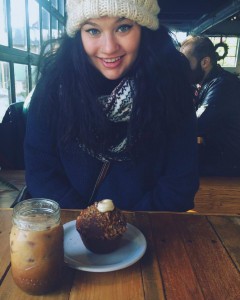Water Privatization:
According to National Geographic, “only 0.0007 percent of the planets water is available to fuel and feed its 6.8 billion people” (Nation Geographic). Just over 2 percent of the Earth’s water is fresh and half of that is either frozen or not easily accessible. With the increasing population, the more intense the need for clean water becomes. About 90 percent of the world’s freshwater remain in the public’s hands, but privatization is becoming more common as governments cannot afford to maintain water purification and delivery systems. Corporations that privatize water creates more problems such as: “corruption, lack of corporate accountability, loss of local agency, weakened water quality standards, and steep rate hikes that eliminate poor people’s access to water.” (Food is Power). One example of privatization of water in the United States is through the company Nestlé. Nestlé owns 50 springs across the nation. They have illegally obtained water from aquifers, engaged in price-gouging tactics, and polarized communities. Nestlé holds the rights to Arrowhead Springs, Calistoga, and Poland Spring bottled water market, playing a main role in environmental issues such as recycling. In the United States more the 28 billion bottles are purchased and only 23 percent of those bottles are recycled. Privatization of water also affects the environment because it has been known to be a cause of water shortage problems. This affects society because if people do not have access to public water they will not survive. It will cause tensions between the social classes because those who can afford to buy bottled water will get more than those who cannot simply buy it. You need water to survive, and if people cannot freely obtain water, problems will escalate. For environment, private companies might be able to make their own laws and will not have to follow government regulations concerning healthy water conditions.
**Information found from these articles:
http://www.foodispower.org/water-usage-privatization/
http://environment.nationalgeographic.com/environment/freshwater/freshwater-crisis/
Pharmaceutical Pollution:
Pharmaceutical drugs are finding their way in bodies of water throughout the world. Germany Environment Ministry tested 713 potential pharmaceutical drugs that could be found in water supplies. Out of those 713, 631 were found in water supplies across the UN. They were found in lakes, rivers, groundwater, soil, manure and drinking water. A particular isolated case in the United States is Lake Michigan. Rebecca. D. Klapper, a professor at University of Wisconsin-Milwaukee tested for pharmaceutical drugs in Lake Michigan, the most common drug found was Metformin (a type 2 diabetes drug used to control blood sugar). The drug and many others are found three miles from the sewage treatment plants surrounding Lake Michigan. This affects the environment by polluting our waters and affecting our ecosystems greatly. Male fish have now developed a gene that causes hormonal changes and causes them to produce eggs. The feminizing effect on male fish potentially inhibits their ability to reproduce. This affects our society because researchers will have to find new environmentally friendly drugs to put on the market. Or stop the sell of some pharmaceutical drugs to keep our waters clean. The most prevalent drugs to harm wildlife include: antibiotics, antidepressants, anti-inflammatories and analgesic, beta-blockers, oral contraceptives and hormone replacement therapies. To prohibit the use of these drugs to save our water supply affects billions of people who need these drugs to survive. It will also affect society by making people dispose unwanted medicines correctly and changing sewage treatment plants to become more efficient and environmentally friendly. This will effect our economy because we will have to find ways to fund sewage treatment plants to reform their system. Furthermore, if “eco-friendly” drugs come on the market, we will have to find a way to make them affordable to the average citizen.
**Information found from this article:
http://www.pharmaceutical-journal.com/news-and-analysis/features/pharmaceuticals-in-the-environment-a-growing-problem/20067898.article
Repealing the Affordable Care Act:
Since President Trump took office this past Friday, he and his cabinet have already been working to repeal the Affordable Care Act (Obamacare). If the repeal goes through, 20 million Americans will lose health care. Trump wants to replace the health care with something “far less expensive and far better”. However, he does not have a set plan to replace Obamacare yet. On January 12, Senator Bernie Sanders tweeted “As Republicans try to repeal the Affordable Care Act, they should be reminded every day that 36,000 people will die yearly as a result”. This affects society by people not having healthcare which is a human right. Many citizens may not be able to afford needed medicines for mental and chronic illnesses. It will affect economics by trying to fund a new health care system and making healthcare more affordable. It will affect the environment because if people do not have health insurance their primary focus will not be buying sustainable and organic products, instead they will be making sure they have enough money to buy their health necessities.
The topic I chose to do out of these three is pharmaceutical pollution. I think this is the most interesting between the three because I really do not know much about it. It will be an interesting topic to explore through out the semester and see how it affects the environment, economy, and society. I think the hardest issue to focus on will be how it affects the economy, but I am eager to solve the issue. I intend to explore this issue by watching documentaries, reading lots of articles, and looking at graphs from previous years to see how pharmaceuticals affect our bodies of water.
















 e Columbus area. This would’ve been a fine idea except for the previous night I drank about 12 cups of coffee while staying up until 3 in the morning trying to finish a paper (college problems). However, I went with the idea since I am a coffee enthusiast.
e Columbus area. This would’ve been a fine idea except for the previous night I drank about 12 cups of coffee while staying up until 3 in the morning trying to finish a paper (college problems). However, I went with the idea since I am a coffee enthusiast. Our second stop was
Our second stop was  did I really like the drink I got. I got a chai tea and Mission Coffee’s was a lot better… Danielle got a hot chocolate which she said was pretty good. The place was a lot cheaper than Mission Coffee though which was nice- I would definitely get their drinks to go, but if you are looking to sit down to enjoy Mission would be a better choice. I probably will not go back.
did I really like the drink I got. I got a chai tea and Mission Coffee’s was a lot better… Danielle got a hot chocolate which she said was pretty good. The place was a lot cheaper than Mission Coffee though which was nice- I would definitely get their drinks to go, but if you are looking to sit down to enjoy Mission would be a better choice. I probably will not go back. ot a cappuccino which probably would’ve been really good however,
ot a cappuccino which probably would’ve been really good however, I was so coffee-d out I could not finish it. I would still definitely recommend this place to get a coffee. I will most likely go back.
I was so coffee-d out I could not finish it. I would still definitely recommend this place to get a coffee. I will most likely go back. however, the coffee w
however, the coffee w as disgusting- one of the weirdest tasting coffee’s I’ve had. It was supposed to be sweet, but it definitely was not just
as disgusting- one of the weirdest tasting coffee’s I’ve had. It was supposed to be sweet, but it definitely was not just